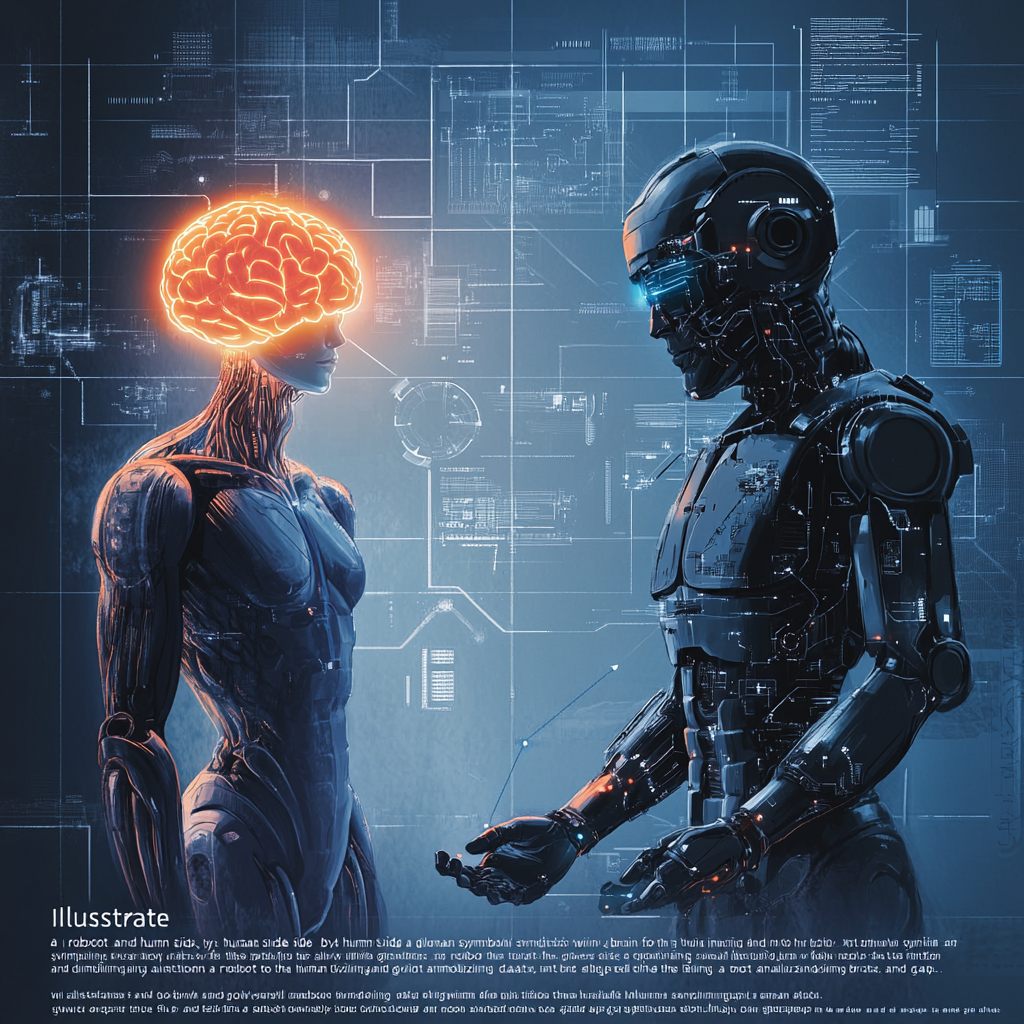
“Intuition: The Human Edge Over AI and Robots”
The Curious Case of Human Intuition: Why AI and Robots are Still Playing Catch-Up
Let’s face it, my friends: empathy, creativity, and true insight—these are the golden nuggets of human intuition, and no shiny robot or algorithm is quite there yet. The gulf between human and AI capabilities is not just a shallow puddle; it’s more like the Grand Canyon. Recent findings from Marieke van Otterdijk over at the RITMO Center in Oslo have thrown a rather bright spotlight on this enchanting chasm.
The Wonder of Human Intuition
Intuition is like that gut feeling you get when you instinctively know someone means something deeper with their words or when you dodge a tricky situation almost out of instinct. It’s quick, a touch emotional, and a smorgasbord of past experiences swirling into an amalgam decision-making process. What unfolds is nothing short of magic. Imagine witnessing a child unwrap a gift, their joy just radiating as a beaming smile spreads across their face! You immediately connect this moment with a birthday. Sure, your intuition might be wrong—perhaps it was just a surprise gift!—but hey, that’s the beauty of the human experience—a parade of associative thinking that lights up when we least expect.
Now speed up the clock to the present. Here come our silicon-based friends. AI and robots make their decisions based on rigid algorithms and logic, devoid of those fantastic emotional undertones. They're immensely good at processing data and turning the mundane into a well-oiled machine. However, ask them to forge ahead into that realm of instinct and gut feelings? Well, let’s just say they’re like a deer caught in headlights. Van Otterdijk depicted a raw scene—robots attempting simple human interactions like shaking hands with seniors, only to have their moves belied by an undefined awkwardness that, frankly, just doesn’t meet the mark!
Trying to Teach Robots Intuition?
Now, let’s head into the thrilling debate: can robots be taught a semblance of this elusive human intuition? Researchers are laboring like earnest bees to put this dream to fruition. Van Otterdijk has rolled out a framework hoping to open doors to what can resemble robotic intuition. Of course, we're still in the foggy morning hours of this journey, as we haven’t completely untangled the complexities of our unique human intuition either.
But wait! There’s been a breakthrough at the University of Hertfordshire. Picture this: an algorithm that allows robots to set their own goals based on their interactions with their surroundings. It evokes the very essence of what drives human and animal behavior—responses to environmental cues rather than chasing after processed rewards. So, could we witness robots that learn in a more human-like way, interacting and adapting to their world as we do? The possibilities get tantalizingly close!
The Ethics of Intuitive Robots
Ah, but hold your horses! With great potential comes a whirlwind of ethical quandaries. Van Otterdijk raises an outstanding point: when should robots fly solo and when do humans need to intervene? If a robot offers food to an elderly person who might have no appetite, should it respect this individual's wishes, or follow along with what society believes is best? It creates a heady swamp of dilemmas, emphasizing that we ought to see robots as supplements to human effort—not replacements.
Navigating the Future of Human-Robot Interactions
Imagine a world where this enchanting blend of intuition melds into robotic systems. It’s not far-fetched; it's just close enough to touch. Think about this:
- Enhanced Human-Robot Interaction: Robots of the future could decipher and react to human sentiments much more fluidly, paving the way for interactions that resemble our natural communication patterns.
- Guidelines for Ethical Decision-Making: It’s essential to hammer out clear, actionable thresholds on when robots can make decisions sans humans in the room and when we hold the reins.
- Greater Adaptability: If robots can tap into intuitive understanding, their adaptability in various settings—from hospitals to exploration endeavors—could skyrocket.
In Closing: Claiming the Throne of Intuition
In the tapestry of human capability, intuition remains a vivid thread that robots and AI have yet to fully grasp. Tinkering with robotic intuition brings up a plethora of existential questions and ethical implications that cannot be glossed over. However, by unveiling the depths of human insight, we can create robotic systems that don’t merely match our performance but harmonize beautifully with our very essence, meeting our needs and values perhaps even before we voice them aloud.
Curious about how this all unfolds and eager to stay in the know about the latest in AI and robotics? Don’t miss out! Join us on our Telegram channel for the freshest updates: @channel_neirotoken

